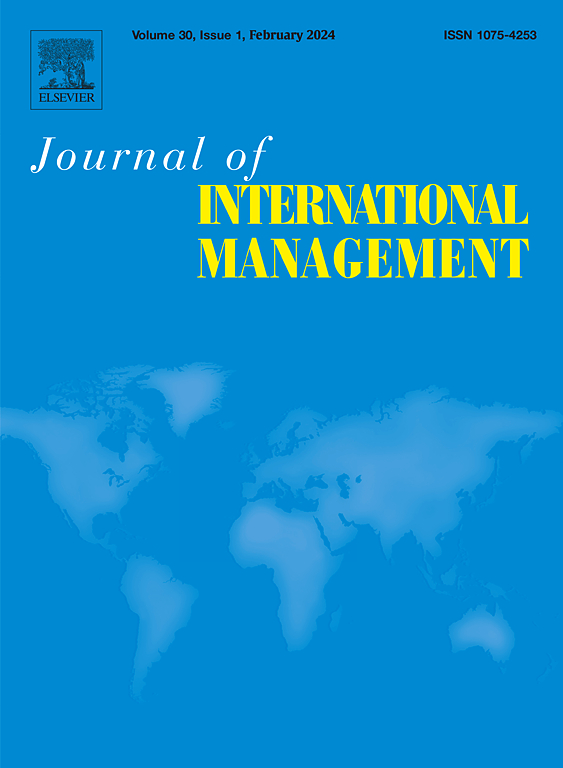跨国公司的知识治理:知识产权差异中的子公司角色
IF 4.9
2区 管理学
Q1 MANAGEMENT
引用次数: 0
摘要
本研究探讨跨国公司如何在不同的知识产权(IPR)保护下管理海外子公司的决策授权。通过对401家子公司数据的分析,我们发现知识产权制度差异与决策授权之间的关系是由子公司战略角色中介的。在知识产权保护较弱的环境中,企业母公司将子公司定位为能力开发角色,强调非本地参与和对供应的内部依赖。相反,在更强的知识产权环境中,子公司通过更多的本地知识参与和外部供应流入,发挥能力创造的作用。这些战略角色随后影响决策结构,创造能力的角色需要更多的自主权,而开发能力的角色促进了集中化。这种环境-战略-结构的一致性促进了跨国公司如何设计其组织以平衡全球知识保护和知识创造的理论。本文章由计算机程序翻译,如有差异,请以英文原文为准。
Knowledge governance in multinational firms: Subsidiary roles amid IPR differences
This study examines how multinational firms manage decision delegation in foreign subsidiaries amid varying intellectual property rights (IPR) protection. Analyzing data from 401 subsidiaries, we find that the relationship between institutional IPR differences and decision delegation is mediated by subsidiary strategic roles. In environments with weaker IPR protection, corporate parents position subsidiaries toward competence-exploiting roles, emphasizing non-local engagement and internal reliance on supplies. Conversely, in stronger IPR environments, subsidiaries adopt competence-creating roles with greater local knowledge engagement and external supply inflows. These strategic roles subsequently influence decision structures, with competence-creating roles requiring more autonomy and competence-exploiting roles facilitating centralization. This environment-strategy-structure alignment advances theory of how multinational firms design their organization to balance knowledge protection and creation globally.
求助全文
通过发布文献求助,成功后即可免费获取论文全文。
去求助
来源期刊

Journal of International Management
MANAGEMENT-
自引率
9.80%
发文量
67
审稿时长
81 days
期刊介绍:
The Journal of International Management is devoted to advancing an understanding of issues in the management of global enterprises, global management theory, and practice; and providing theoretical and managerial implications useful for the further development of research. It is designed to serve an audience of academic researchers and educators, as well as business professionals, by publishing both theoretical and empirical research relating to international management and strategy issues. JIM publishes theoretical and empirical research addressing international business strategy, comparative and cross-cultural management, risk management, organizational behavior, and human resource management, among others.
 求助内容:
求助内容: 应助结果提醒方式:
应助结果提醒方式:


